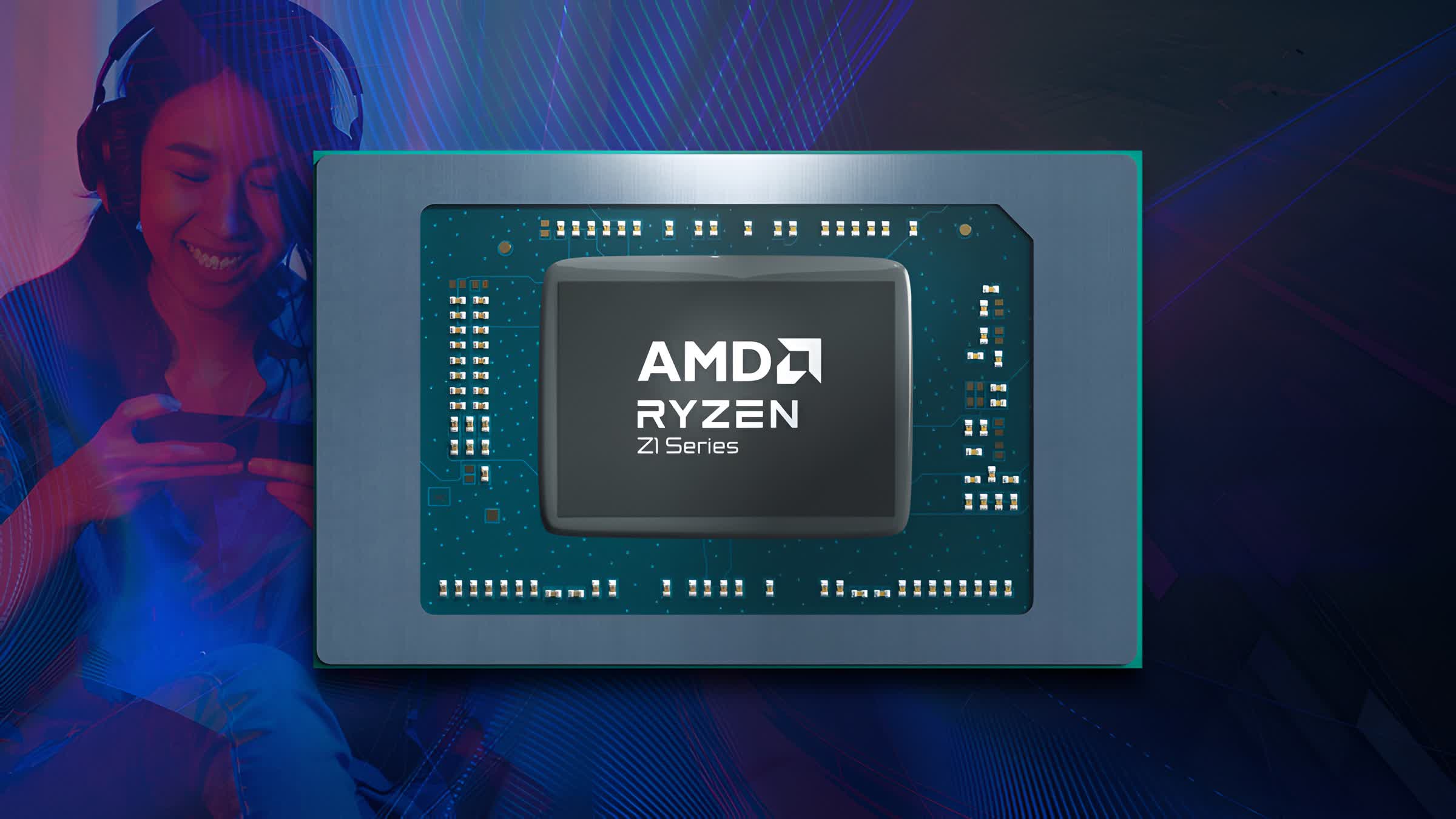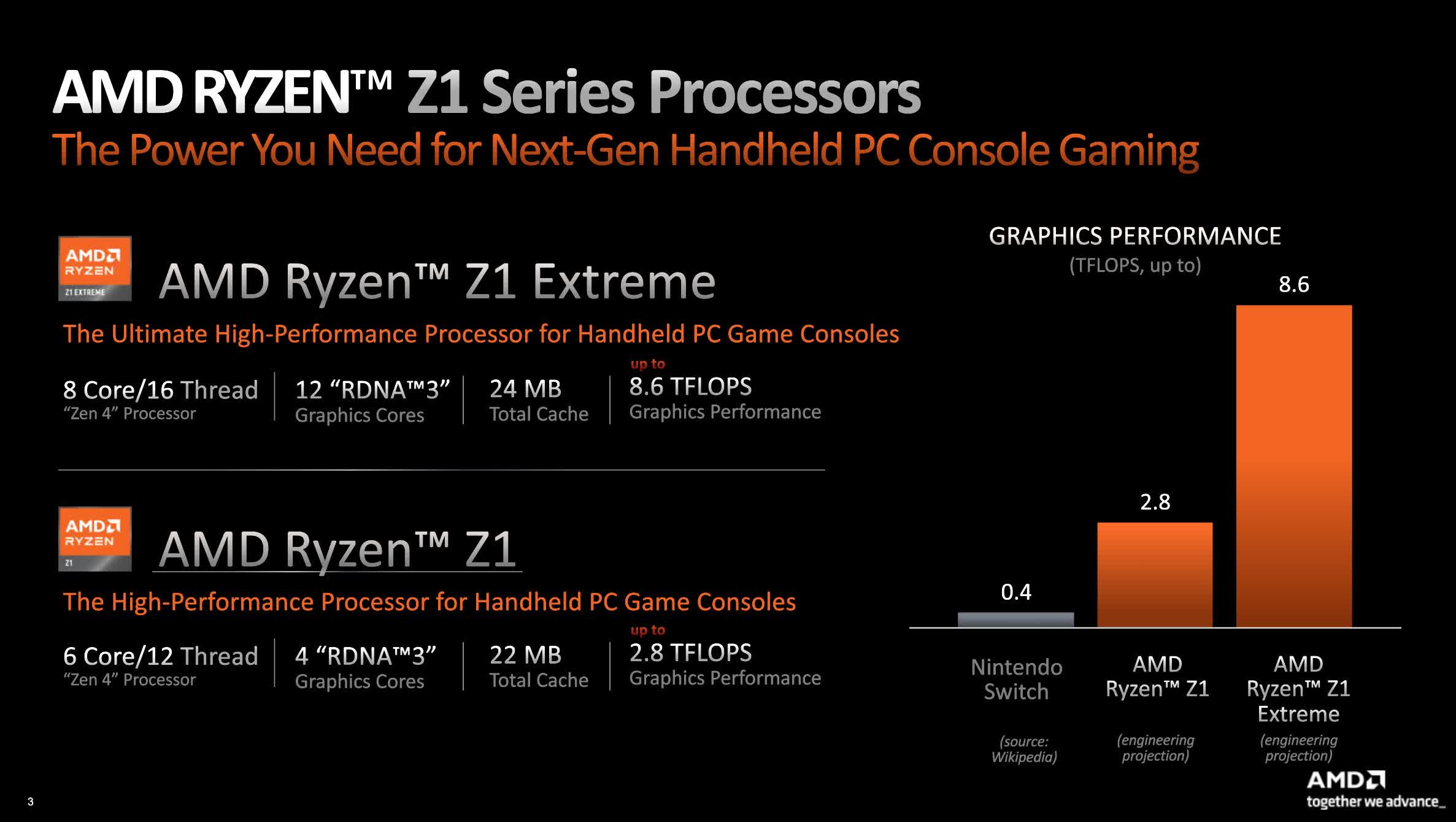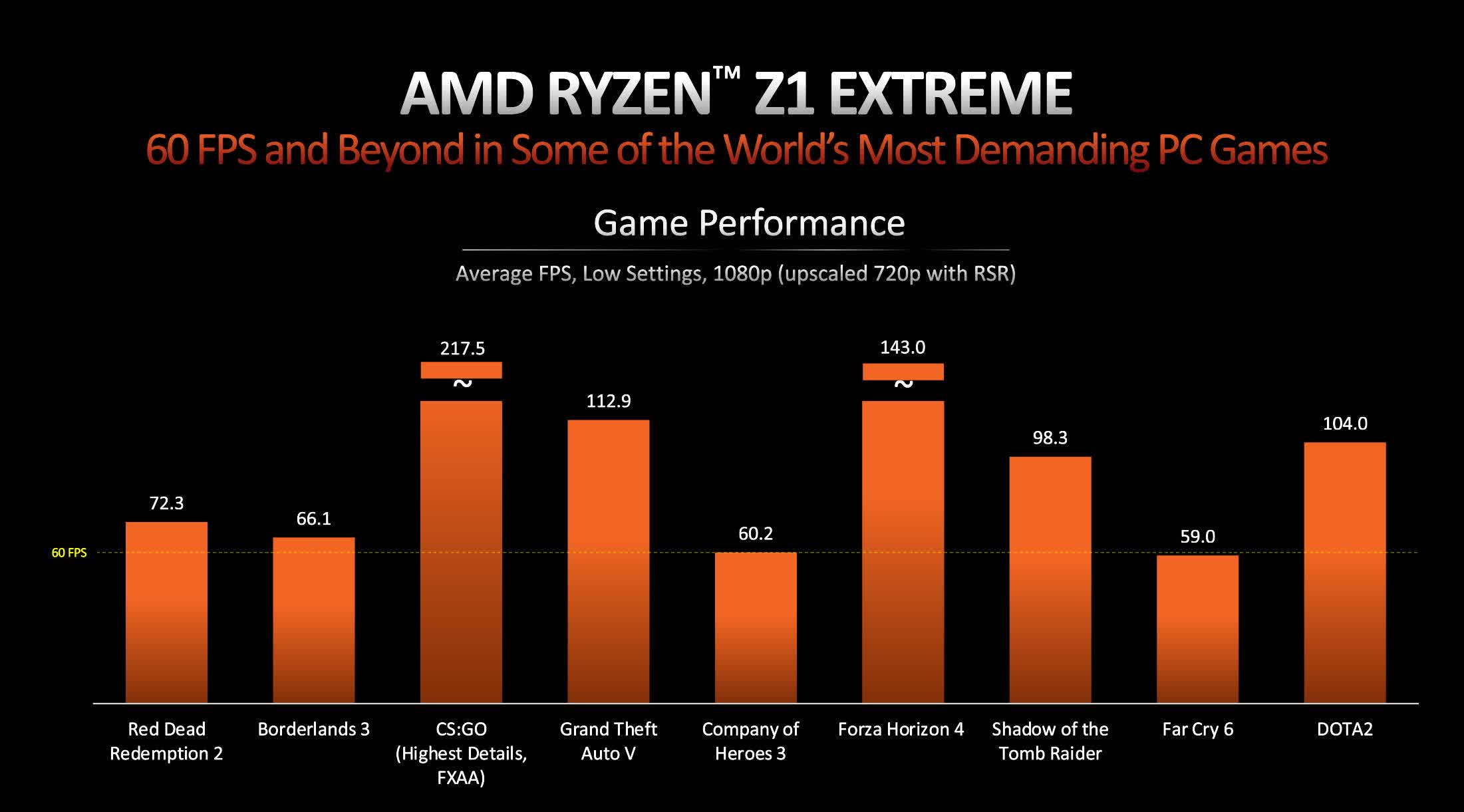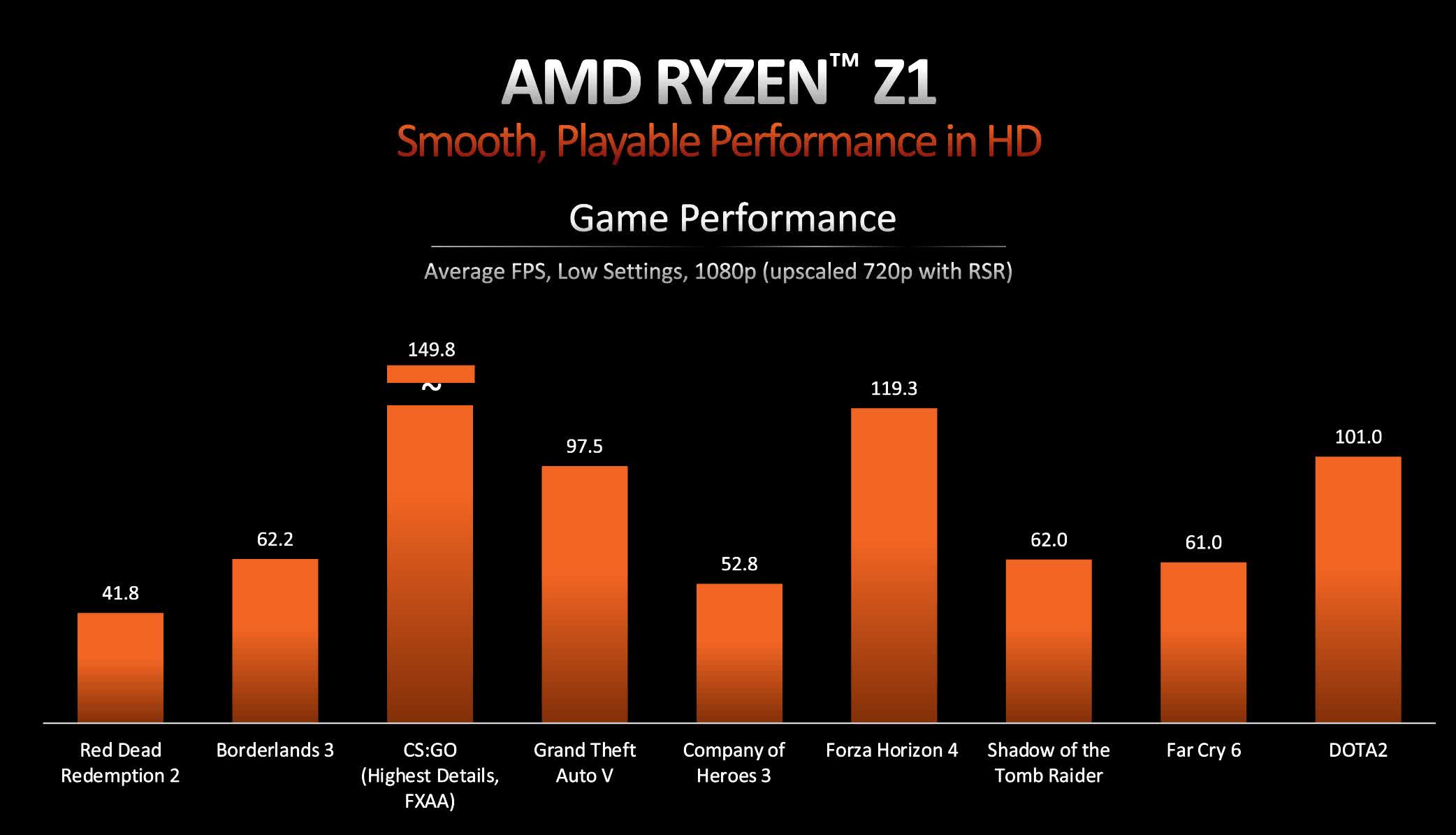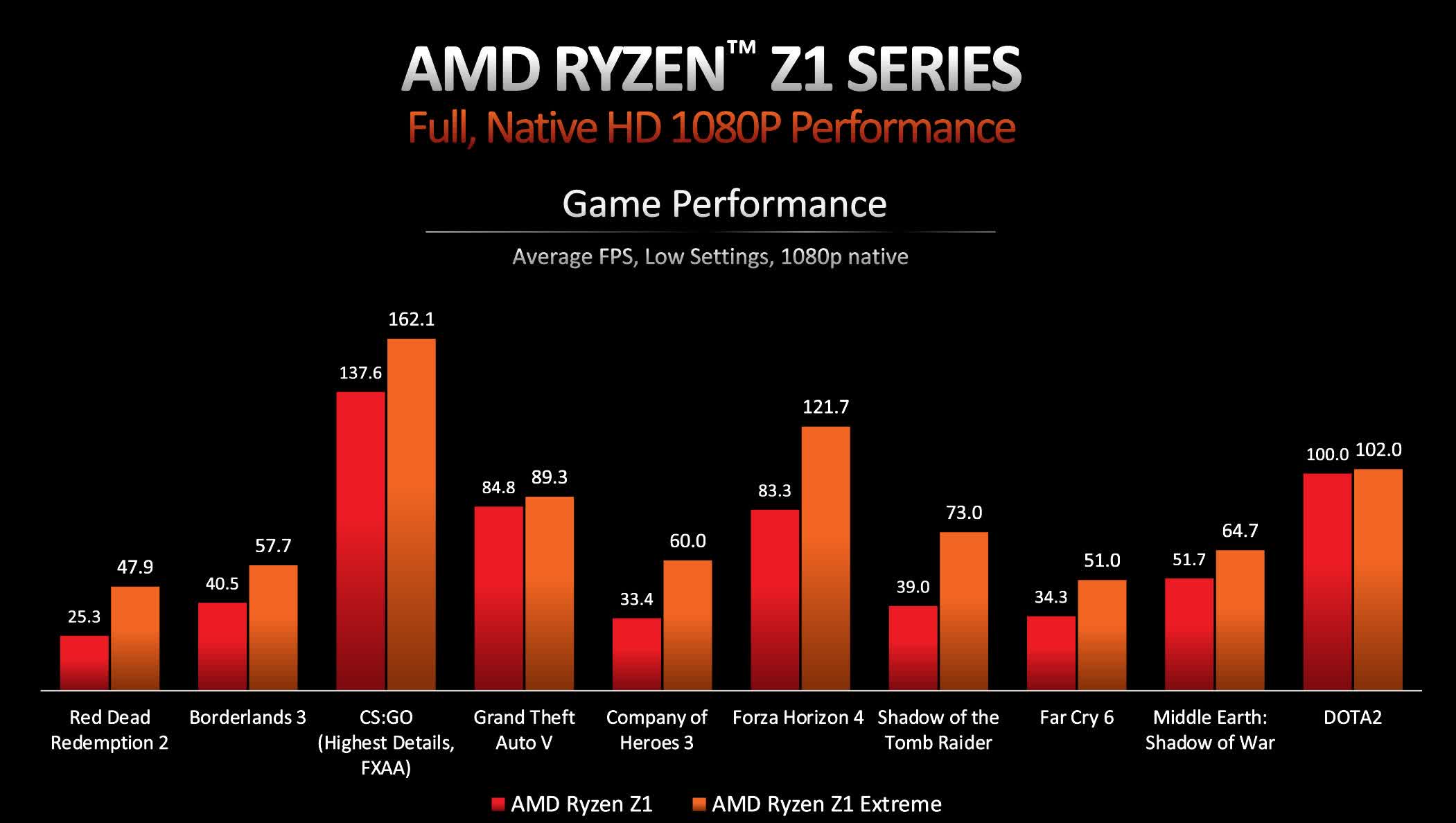In context: There are several alternatives out there for the Steam Deck, and more are on the way. Something that caught our eye is the Asus ROG Ally, a handheld console that integrates AMD's new Ryzen Z1 series processors. These are custom laptop parts adapted to handheld gaming PCs and pack some serious processing power in a small package – between two and five times more than the Aerith APU in the Steam Deck.
When Valve unveiled the Steam Deck, it paved the way for a flurry of alternatives that revitalized the niche for handheld gaming and pushed companies like AMD to focus more on improving driver support for Linux systems.
The device has gained a lot of mindshare and total sales are expected to hit three million units this year. Not only that, but it spawned a flurry of devices from new and established hardware manufacturers that may help materialize Valve's dream of Steam Machines, albeit in a different shape than originally envisioned.

Speaking of Steam Deck alternatives, the much-anticipated ROG Ally from Asus is now official, and with it, a new wave of AMD processors is coming into focus – the Ryzen Z1 and the Ryzen Z1 extreme.
The APU pair is built on a 4 nm process node and is specifically designed for handheld consoles. The Ryzen Z1 is equipped with six Zen 4 CPU cores for a total of 12 logical threads and four RDNA3 GPU cores sharing 22 megabytes of cache. Meanwhile, the Extreme sibling packs eight CPU cores and 12 GPU cores sharing 24 megabytes of cache.
On paper, the Z1 offers up to 2.8 teraflops of graphics performance (similar to something like a GeForce GTX 1650 desktop GPU) while the Z1 Extreme tops out at 8.6 teraflops (similar to the GeForce RTX 3050 Ti Laptop GPU). By comparison, the Steam Deck has a more modest 1.6 teraflops while full-fat consoles like the Xbox Series X and PlayStation 5 offer 12.1 teraflops and 10.3 teraflops, respectively.
That doesn't always translate well into actual gaming performance, so AMD has provided some internal benchmark results for popular games using low graphical settings and Radeon Super Resolution (RSR) upscaling from 720p to 1080p. We're not sure if this means the company used the Low Preset or the lowest possible graphical settings, but the results suggest the Ryzen Z1 Extreme should achieve an average of at least 60 frames per second even in more demanding titles like Far Cry 6 or Read Dead Redemption 2.
The regular Ryzen Z1 can also run games like Forza Horizon 4 and GTA V at a smooth frame rate, but it will struggle a bit in more demanding titles.
If you're not a fan of upscaling technologies and want to run games at native 1080p, the Z1 will likely require locking to frame rate via Radeon Chill to 30 frames per second to avoid stutter. Meanwhile, it looks like the Z1 Extreme can maintain at least 40 to 50 frames per second even in more visually complex games.
We're told the tests were done using an engineering sample of the upcoming Asus ROG Ally, and that the power draw for the new APUs can reach up to 30 watts depending on the title you're playing. This runs contrary to Valve's philosophy of balancing power and battery life, but Asus says you can squeeze up to eight hours of battery life thanks to the larger battery in the ROG Ally.
Also read: Why Steam Deck is One of the Most Significant PC Gaming Moments in Years
For now, the Ryzen Z1 and Z1 Extreme seem to be exclusive to Asus, but a recent leak suggests these are likely custom variants of an unannounced laptop part called the Ryzen 7 7840U. This means it won't be long before we see it in some form in a variety of Steam Deck competitors.
As for the ROG Ally, it will come in two variants featuring either the Z1 or the Z1 Extreme paired with 16 gigabytes of dual-channel LPDDR5 memory and 512 gigabytes of PCIe 4.0 storage. Like the Steam Deck, you'll be able to expand this via an SD card slot that can handle up to UHS-II cards. The 7-inch screen sports a resolution of 1920 by 1080 pixels, a peak brightness of 500 nits, and up to a 120 Hz refresh rate.
Asus says it will share details about the pricing and availability of the ROG Ally on May 11. We're expecting it to be priced higher than the Steam Deck but lower than $1,000, and we're told it will come with three months of Xbox Game Pass included.
